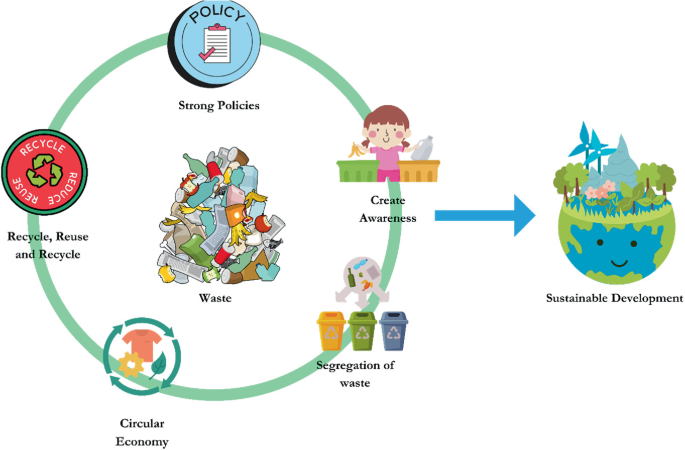9 Simple Techniques For Reclaim Waste
9 Simple Techniques For Reclaim Waste
Blog Article
The Best Strategy To Use For Reclaim Waste
Table of ContentsThe Facts About Reclaim Waste RevealedWhat Does Reclaim Waste Do?10 Easy Facts About Reclaim Waste DescribedThe Main Principles Of Reclaim Waste The smart Trick of Reclaim Waste That Nobody is Talking About6 Easy Facts About Reclaim Waste Described
With correct liquid waste management, business can minimize energy-intensive treatment procedures and disposal prices. They additionally reach save resources and allocate them in other appropriate processes. There are countless laws that shield public wellness and the atmosphere. By following a system for taking care of fluid waste, business can avoid pricey penalties and penalties and stay clear of adverse promotion.Stay ahead of guidelines and keep a secure workplace with a digitized conformity tool. Classifying fluid waste is critical for efficient storage, treatment, and disposal. Environmental, Health And Wellness, and Safety And Security (EHS) groups, waste monitoring police officers, and compliance supervisors can handle these wastes safely and efficiently when they understand the fundamentals: Generated from homes, this type of liquid waste comes from toilets, sinks, showers, and washing machines.
(https://www.4shared.com/u/Cg6hWklv/leonaube33101.html)Collect depictive examples from various factors within the waste stream to ensure accuracy. Fluid waste, specifically dangerous ones, presents substantial threats during this step.
The Facts About Reclaim Waste Uncovered
Segregate the waste based on its type (e.g., hazardous or non-hazardous) to ensure appropriate handling. Shop waste in secure and watertight containers to avoid spills during collection. Label the containers appropriately, including the type of waste, potential hazards, and dealing with directions. Load the protected bins right into transport automobiles with vacuum vehicles or portable storage tanks.
Disinfection (e.g., chlorination, ultraviolet light, ozonation) and nutrient removal (e.g., denitrification and phosphorus elimination) are recommended under rigorous laws. Many firms violated several fluid waste disposal guidelines in recent years.
After selecting the most effective sort of treatment technique for liquid waste, firms should find ways to throw away this appropriately. Right here are some reliable techniques of fluid waste administration: get most treated liquid waste that satisfies discharge standards. refers to utilizing cured wastewater in farming lands for watering as long as the effluent fulfills hygienic levels per regulations.
Excitement About Reclaim Waste
Shallow containers include fluid waste that is allowed to evaporate through all-natural procedures. This kind of disposal is subject to rigorous ecological policies due to possibly harmful discharges.
The findings should be documented, analyzed, and kept not just for submission to regulative authorities but additionally for making enhancements in the future. Usage reputable devices, techniques, and software application solutions to make certain exact and consistent data collection. Keep updated on pertinent ecological policies and market standards. Share info with pertinent stakeholders (e.g., staff members, regulatory federal government agencies, and nearby areas) to keep openness and liability.
Fascination About Reclaim Waste
No matter of the firm size or industry, there are many challenges linked with this job. Comprehending these can aid them effectively handle their operations and minimize their ecological impact. makes it hard to deal with and dispose of liquid waste safely. Business that can't spend in centers ought to think about collaborating with the public sector for much better options.
Fluid waste describes any kind of product in a fluid state that is YOURURL.com surplus, undesirable, or disposed of. One considerable obstacle for business is the absence of proper storage centers for liquid waste. Partnering with fluid waste solutions will substantially lessen this difficulty Requirement skip bins and other containers that are normally used for solid waste are frequently insufficient for the distinct demands of managing liquid materials.
The 4-Minute Rule for Reclaim Waste
This blog dives right into the attributes of fluid waste, talking about just how spills and contamination cases can be handled efficiently. It also discovers the procedures companies can require to prevent future leakages and what to do when spills inevitably take place. Liquid waste consists of any kind of unwanted or surplus product that exists in a liquid form and is established for disposal.
This type of waste arises when a product is no longer required, much like any type of other form of garbage. It is crucial to involve skilled liquid waste management specialists when moving or disposing of fluid waste.

The Ultimate Guide To Reclaim Waste
"product has to pass through a 0.45-micron filter at a pressure differential of 75 psi" in order to be specified as a fluid. Both have their differences.
Oil spills can cause dirt contamination and other environmental catastrophes. Both organizations and individuals can substantially gain from recognizing appropriate garbage disposal processes through 9 best practices in waste management. These approaches are aligned with the well established waste power structure. Waste avoidance is one of the most effective method for managing resources and decreasing environmental effect.

Report this page